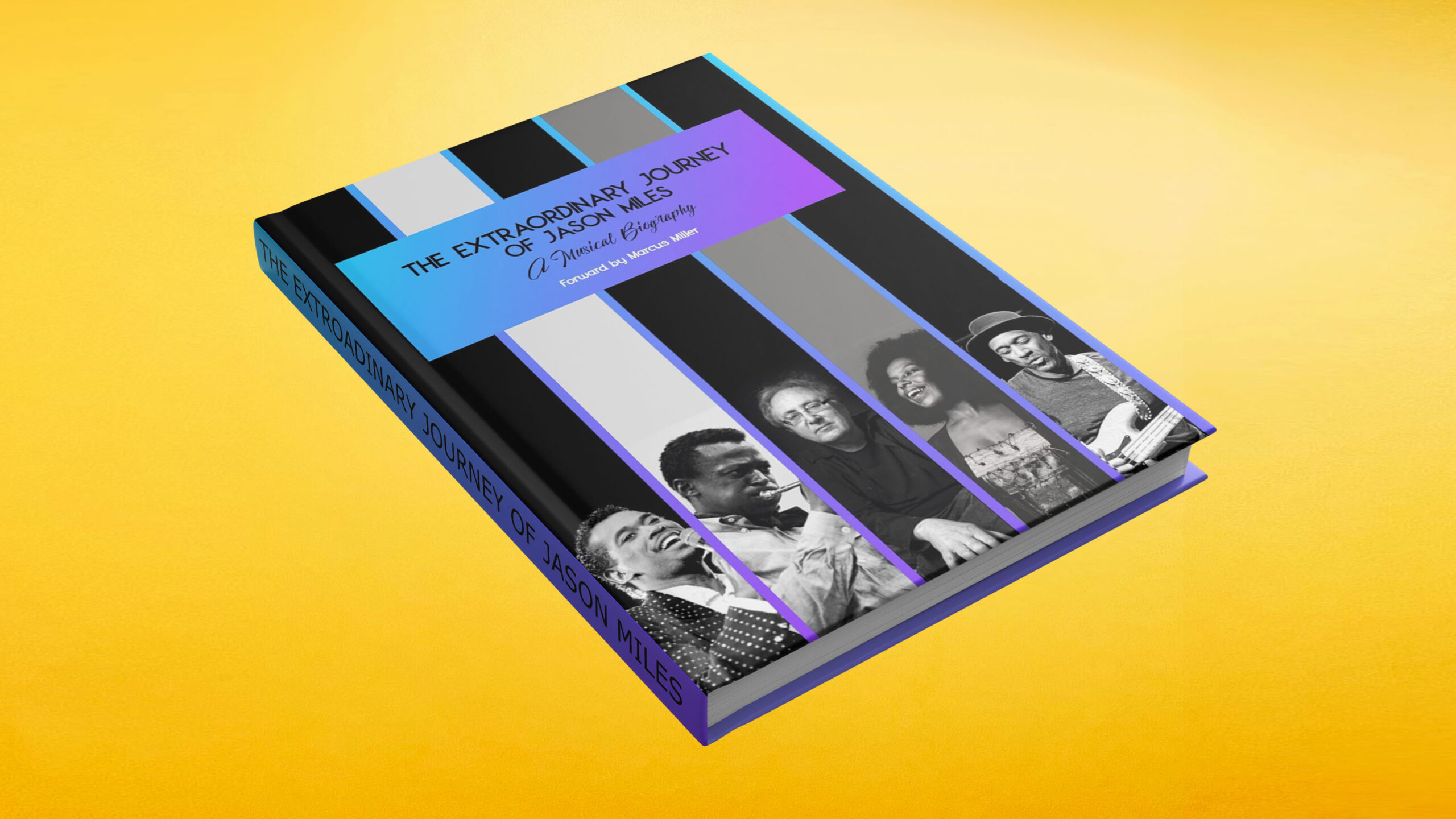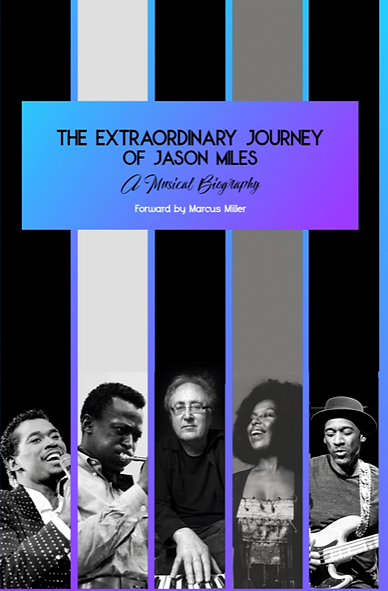
You may not be familiar with the name Jason Miles, but there’s a good chance that you’ve heard his work. Miles is a Grammy Award-winning producer, composer, arranger and synthesist who has worked with A-list recording artists, including Miles Davis, Luther Vandross, Sting, Roberta Flack, Whitney Houston, Chaka Khan, George Benson, Michael Jackson, David Sanborn, and Vanessa Williams, among others.
His 50-year musical history spans jazz, pop, synth pop and R&B. Having heard a lot of his work, I can tell you it’s impressive. I’ll also tell you up-front that Jason is a good friend, so I can’t help but like his autobiography, The Extraordinary Journey of Jason Miles.
Released in 2022, The Extraordinary Journey of Jason Miles chronicles the author’s career from its beginnings in Bensonhurst, Brooklyn, N.Y., during the 1950s and 1960s, when Jason’s father ran the family hardware business, and—as was typical of the era — his mother was a housewife. He recalls for us his first impression of music at the ripe old age of five while attending a wedding, where he jumped on the drum kit and decided that music would be his vocation.

His parents supported his desire to become a musician, and after brief stints learning guitar and accordion, Jason became serious about learning piano (age 12). This set him on a path that would lead to outgrowing the local piano teachers by age 15, and playing in bands at hotels in the Catskill Mountains by age 16. In the 1970s, Miles navigated a family move to Florida, then a return back to New York, where he felt his career could continue to grow.
I grew up in the same neighborhood during the 1970s, so Miles’ recollections of his youth brought back an assortment of my own vivid memories, ranging from shopping for vinyl records at E.J. Korvettes, to strolling down the street to the local luncheonette for an egg cream. If you’ve never had an egg cream from a legit luncheonette in Brooklyn, you’ve never had an egg cream!
Along the way, we get glimpses that Jason is keeping up with musical instrument technology—moving from a Farfisa Duo to a Wurlitzer, then to MIDI when it emerged in the early 1980s—and becoming part of a musical circle that included Michael Brecker, Lenny White and Marcus Miller, who, we later learn, becomes a lynchpin in Miles’ career. Unlike many musicians at the time, Jason embraced the technology, teaching himself how to program synths and sequencers, dealing with MIDI Time Code, and making his skills invaluable to an assortment of producers. This technological adeptness leads to one of the high moments in the book, where Jason discusses his work on Miles Davis’ “TuTu.” I won’t spoil it here with details.
Jason also relates the challenges of making the jump to producer, and even though I already knew the outcome, I couldn’t help but get excited when he explains how he finally got Sting onboard to sing “She Walks This Earth” from the producer’s all-star production, A Love Affair, The Music of Ivan Lins (Sting won a Grammy for Best Male Pop Vocal in 2000 for that song).
One constant throughout this Extraordinary Journey is Jason’s wife, Kathy, and it’s refreshing to learn that they met while he was attending school at Indiana State University in Terre Haute, Ind., and have been together ever since. Through all of the career twists and turns, Jason reveals how Kathy has been his rock, and the book is as much a tribute to their love for each other as it is a chronicle of Jason’s career in the music business.
This isn’t a tech-retrospective, so don’t expect a tutorial of “this is how I mixed this record”—though Jason does take us through a few of the technological adventures he faced in the world of synth programming. It’s interesting to see how his programming chops became almost as important as his musical chops, and how these skills (along with his ability to forge personal and professional relationships) changed his career trajectory.
Rather, The Extraordinary Journey is all about the human element of starting out with a dream, pushing through the BS that awaits anyone working in the music biz, and dealing with the pressure of working with high-profile artists and the politics that comes along with those types of gigs. He reveals how he managed to navigate many of these obstacles, while also treating us to an inside look at how some amazing records were made. And it’s interesting to see the web of musical connections that he weaves over the years.
Jason’s casual style of writing makes you feel like you’re hanging out and having a conversation with him, as opposed to reading a formal biography. And I think that’s just the way he’d like it.







